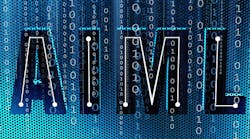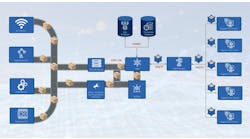How often have you had a conversation with someone and then your phone suddenly, unexpectedly delivers the very content you were just discussing? Maybe it’s a song you’d mentioned or a shirt or an automation component.
Is Big Brother listening?
Also read: Stratus, Espalier release research on top use cases, industries driving edge adoption
A friend of mine recently mentioned that he was thinking of a song, and that song was subsequently delivered to him on Spotify. Yes. Thinking. He hadn’t said a word.
I might have thought he was mistaken or exaggerating for effect; maybe he just didn’t remember saying the song’s title out loud to someone. Laptop computers and mobile devices can’t read minds, can they?
A relatively similar instance happened to me during the pandemic, when I’d been watching all 11 live-action Star Wars movies in chronological order. It made me wonder how the sound of a lightsaber was created. I was thinking about it. In my head.
At some point, I found myself watching a completely unrelated video on YouTube, but, to my amazement, up next was an interview with Ben Burtt, in which he explained, you guessed it, how he created the sound of a lightsaber. Wow. Serendipity, eh?
Maybe. But maybe not.
Perhaps what seems like an outlandish coincidence is simply the result of artificial intelligence knowing what I want based on my behavior.
Artificial intelligence (AI) and machine learning (ML) are two of the hottest buzzwords in the manufacturing-automation space. They’re often used interchangeably or combined as AI/ML, but, just as humans require learning to gain intelligence, ML enables AI.
“AI and ML are two distinct concepts," explains Ted Thayer, principal product marketing specialist, control, at Phoenix Contact. “Artificial intelligence is the system making decisions about processes and operations, to be indistinguishable from a human making those decisions. Machine learning is the process by which the machine—PLC, PC, software, whatever—accumulates information and then forms the assumptions that are used by the AI. It requires data and time to build the decision-making framework.”
What does the future hold for AI in manufacturing operations? Its capabilities extend far beyond predictive analytics, driving edge-computing use cases in multiple industry verticals.
In fact, AI/analytics was the dominant application in more than 2,600 use cases reviewed in a 2022 market study of edge computing done by Stratus Technologies and Espalier.ai.
So, where does the future of AI lead? With enough data, can it simulate machine or line operations before they’re conceived? Will the digital twin become a transition technology, much like the compact disc, that is leapfrogged because AI knows how the machine will be operated before it's even built?
“I don’t see this replacing digital twinning, but rather a natural outgrowth of the data collected from twinning,” says Thayer.
What do you think? AI already knows.






